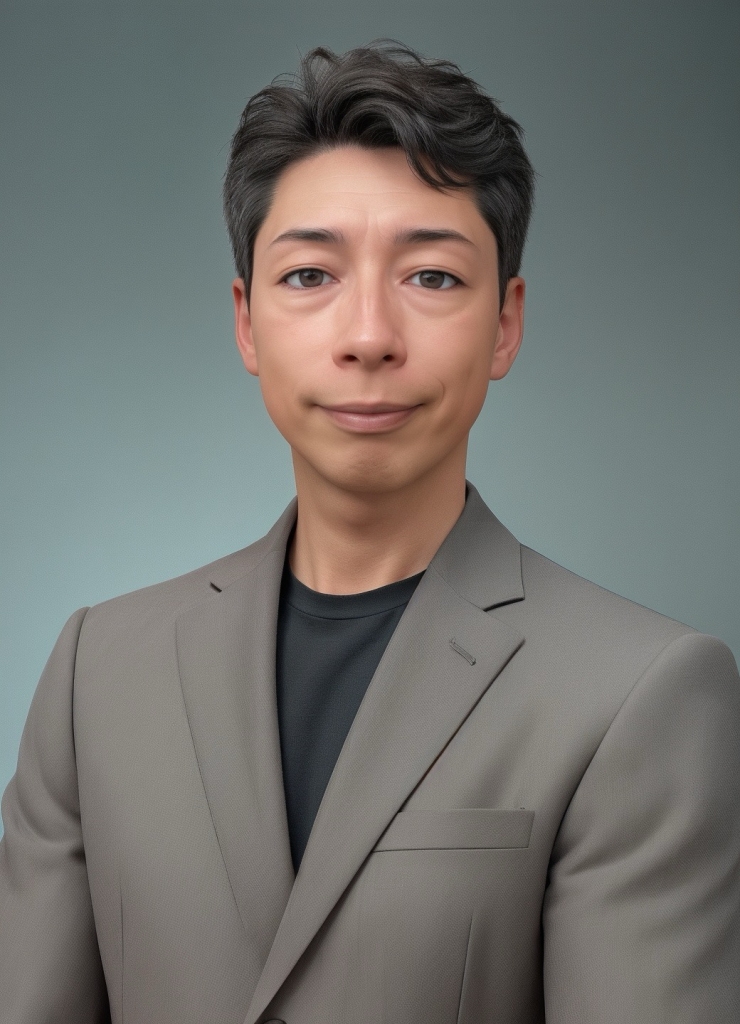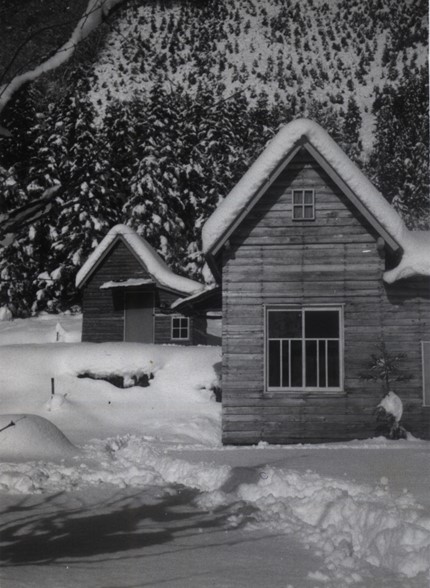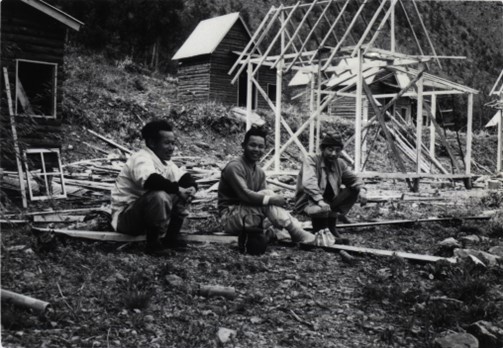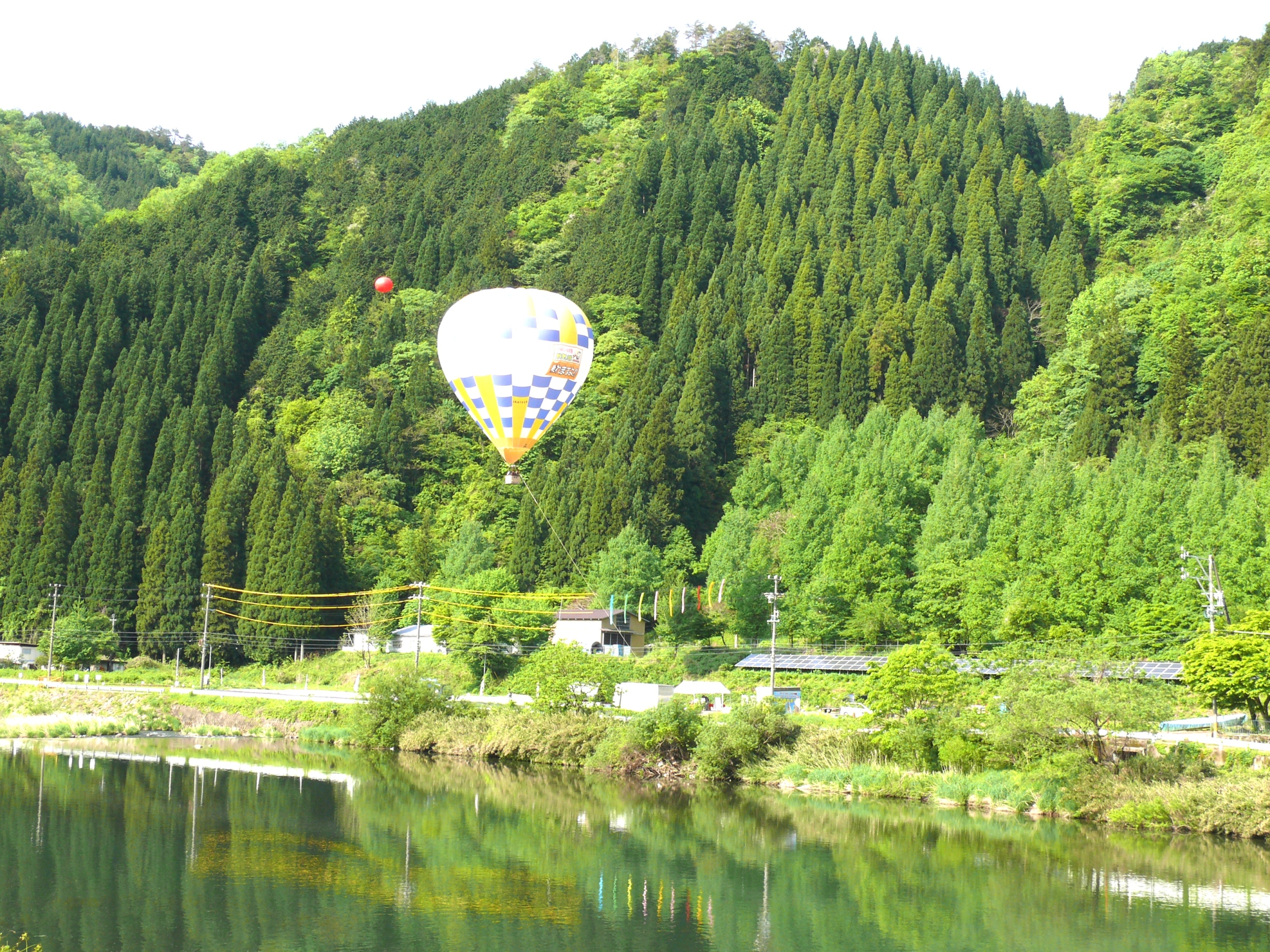Philosophy of the Nature Park
Gujo Hachiman Nature Park contributes to education through camping.
Gujo Hachiman Nature Park contributes to education through camping.
A large proportion of our visitors are school groups. Students hear stories from their teachers and seniors about campfires, skits, and staying in bungalows at the Nature Park, sparking their imagination and anticipation. Among all school events, they look forward to this outdoor learning experience (forest school) with great excitement.
Our staff members work behind the scenes to ensure that students and campers can spend their time safely, protected from major dangers. We constantly prepare for natural disasters and security concerns. Unlike the services at hotels or inns, camping is fundamentally a self-service experience. We understand that our role is to provide a living space—a kind of “blank canvas”—where things may be lacking, inconvenient, simple, and unadorned. In this environment, which is essentially “nature as it is,” people must devise solutions themselves rather than relying on others.
I have come to realize that this very “blank canvas” is a crucial element in nurturing rich sensitivity. No matter how many new “things” or “information” we accumulate, they cannot provide lasting fulfillment to our hearts. This is a truly precious place where people can distance themselves (along with their companions) from daily life overflowing with distractions.
Though the environment may be “inconvenient,” being in nature mysteriously brings joy welling up in our hearts. At the same time, it stimulates the innate human ability to devise solutions from inconvenience, the power to connect with others, and the capacity to read the signs of nature. I hope that the Nature Park will continue to contribute for many years as a place to cultivate the “life skills” that enable people to enjoy life.

History of the Nature Park (Chairman Tamon Miura)
In 1961, we received 20 bungalows that the Hachiman Town Tourism Association had been operating near the city center, transported them to our current location, and opened with the addition of over ten newly constructed bungalows.


At that time, during Japan’s economic growth period, major urban corporations were investing unimaginable sums of money in the Gujo region—developing ski resorts, villa sites, golf courses, and more. Many people in Gujo proudly welcomed these large-scale developments. Amidst this wave of the times, my father lamented, “At this rate, Gujo will be devoured by big urban capital.” However, as small-scale operators, we had no means to compete with them.
So my father and I discussed together, and concluded that we should pursue “something that cannot be created no matter how much money is spent, something that cannot be competed for with money.” Instead of expensive facilities, we decided to grow large, long-lived trees at the campsite, entrusting our dreams to the future. I was around 25 years old, and my father was close to 70. My father believed that accomplishing a task over two or three generations was a wonderful thing. Not at all concerned about his age, he was delighted imagining people enjoying themselves in the shade of great trees.
At that time, our family business was producing seedlings for forestry. Knowing that this land was suitable for Metasequoia, we decided on this tree species and planted over one hundred trees. We later propagated more through cuttings, and now naturally seeded trees continue to grow and multiply.
All these trees have grown smoothly, and in just over 40 years, some of the largest now exceed 1 meter in diameter at breast height, providing shade. Their growth has exceeded our initial expectations. In another 50 years, over 200 great trees exceeding 2 meters in diameter at breast height will be growing, recreating the appearance of an ancient forest from the age when dinosaurs walked the earth. I believe such a scene will surely move people 50 or 100 years from now.
These great trees will provide peace of mind to visitors, and our founding wish—expressed in gratitude to those who visit and wishing happiness for those who depart: “Peace to those who arrive, happiness to those who leave” (currently displayed on the gate pillars at the main entrance of Gujo Hachiman Nature Park)—will continue to greet visitors. I believe this founding wish will be remembered and passed down through generations.
Modern management and economics are built on the basis of maximizing profit, but Gujo Hachiman Nature Park’s management philosophy completely deviates from management and economic theory. Economists would probably laugh at us, but we maintain our unique management policy. I will briefly outline it below, so please enjoy it as material for laughter.
① Going against large-capital management As mentioned earlier, we grow large trees that cannot be created with money, use local materials, and create handmade facilities over time. We avoid mass-produced products as much as possible.
② Concentrating on providing what society needs We constantly search for what is being sought and what we can do among those needs.
③ Environmental consideration Even as the number of users has increased, the incinerated waste we discharge has been halved. Through sorting, we have reduced incinerated waste by 60%. Also, all water used within the park is purified, and we discharge no sewage. We voluntarily constructed purification facilities even before prefectural ordinances required them.
④ We focus more on customer satisfaction than on sales figures We aim to provide peace of mind and joy not only to customers but also to employees and contractors.
Campgrounds serve various customers from individuals to groups, but because each has different purposes, it is very difficult to find a way to satisfy all customers simultaneously. Therefore, to provide satisfaction with maximum safety and security, we separate customer types—individuals and groups use the facilities on different days. Even if there are vacant bungalows, we do not accept customers other than similar types. We believe it is better to eliminate troubles than to increase sales.
⑤ We spend almost no advertising costs (or perhaps cannot afford to?) We value our current customers. Rather than adding advertising costs to usage fees, we believe customers appreciate discounts made possible by not spending on advertising. We constantly improve and enhance facilities but have avoided passing costs on to customers as much as possible.
⑥ No sales staff Our customers are the salespeople for Gujo Hachiman Nature Park. We entrust our sales department free of charge to customers who have paid us. Thanks to everyone, we have received many reservations for next year. We are grateful and are working to ensure next year will be even more satisfying than this year. This is our way of repaying our debt of gratitude.
⑦ Gujo Hachiman Nature Park is a loose collective of young people + seniors + women Nationwide youth organizations handle outdoor activity guidance and planning. Facility maintenance is managed by senior members, ensuring safety and cleanliness. The restaurant cooking is done by local mothers (aunts?) who love cooking.
⑧ Honest management with no secrets Beyond accounting, we take care to maintain facilities, hygiene, and other aspects to standards exceeding those of regulatory authorities. An environment without secrets and with transparency allows everything to operate smoothly without requiring extra energy.
I believe companies with such philosophies are in the minority. We will walk slowly forward, waiting for the day when society’s foundation shifts from “money” to “heart,” when companies similar to ours increase in number and rise to prominence in society.
Autumn 2006 (Heisei 18)







